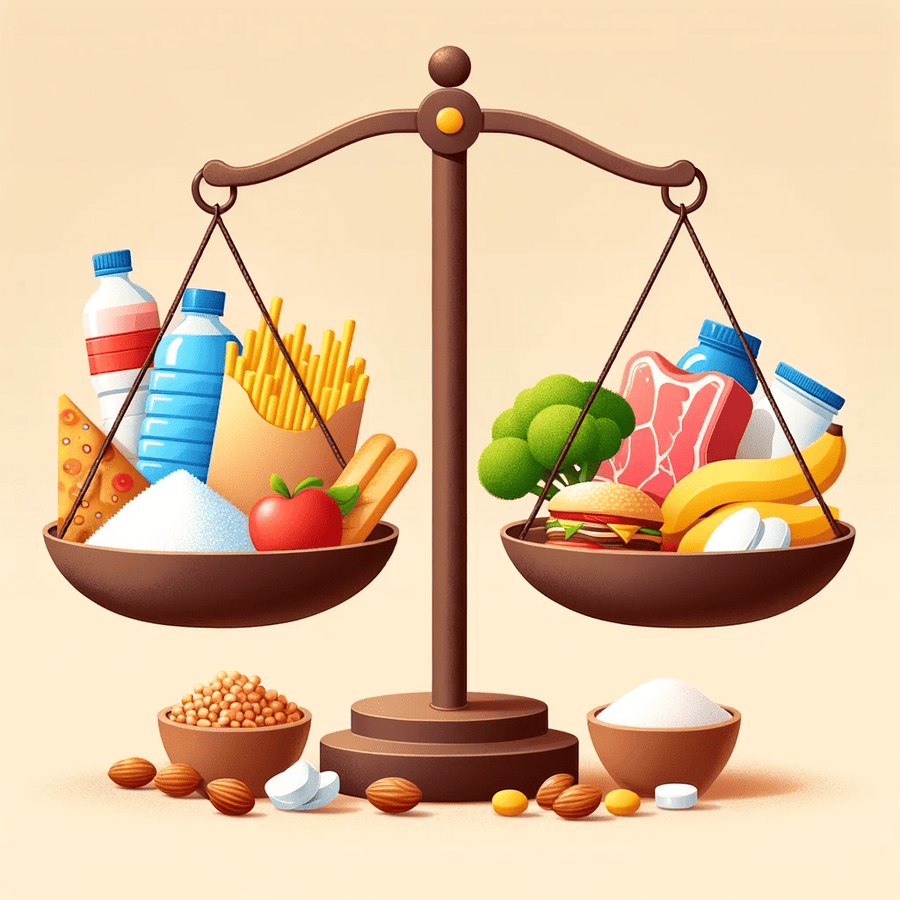You Need Way More Protein
Understanding the role of protein in our diets is crucial, especially for people looking to lose weight and stay healthy. Let's dive into the fascinating insights provided by Dr. Karan Rajan, breaking them down into three key areas.
The Protein Leverage Hypothesis: Craving What We Need
Instinctive Cravings for Nutritional Balance
Historical studies, such as the 1928 research on infants and the 1940 study on an 11-month-old boy, reveal our body's innate ability to crave nutrients it lacks. Infants instinctively chose foods rich in proteins, vitamins, and minerals, while the young boy with a sodium retention disorder craved salt. This demonstrates an inherent mechanism guiding us toward nutritional balance.
Source: 1928 research
Hunger and Protein Intake
The Protein Leverage Hypothesis suggests that our bodies compel us to consume enough protein, influencing our hunger levels. Consuming lower protein levels leads to increased hunger, as seen in various obesity studies. For instance, you might feel hungrier after a low-protein meal (like Big Macs) compared to a high-protein one (like a ribeye steak), despite both providing similar calorie counts.
Source: Obesity: the protein leverage hypothesis
The Impact of Protein on Satiety and Body Composition
Hormonal Response and Appetite Control
Protein intake directly affects the secretion of hormones that regulate appetite. For example, amino acids can increase the levels of appetite-suppressing hormones like GLP-1. This hormonal response is crucial for controlling hunger and maintaining a healthy diet.
Protein's Role in Weight Management
Studies have consistently shown that higher protein diets result in better weight loss outcomes and lower hunger scores. A high protein intake not only aids in satiety but also contributes to better body composition, supporting muscle growth while preventing fat accumulation.
Source: Testing protein leverage in lean humans: a randomised controlled experimental study
The Economics of Protein Consumption: Quality vs. Quantity
The Cost of Protein-Rich Foods
Protein is the most expensive macronutrient, and this is reflected in food costs. As protein density in food increases, so does its price. This contrasts with cheaper, processed foods that are often low in protein but high in sugars, processed carbohydrates, and unhealthy fats.
Protein Intake and Socioeconomic Factors
There's a correlation between lower income and higher obesity rates, partly attributed to the consumption of cheaper, low-protein foods. These foods may contribute to overeating and weight gain due to insufficient protein content, driving the body to seek more food to meet its protein needs.
Optimizing Protein Intake
Aiming for a higher protein-to-energy ratio in your diet is essential. Foods with higher protein content relative to their calorie count (like lean beef) are more conducive to maintaining a healthy, lean body. Conversely, foods with lower protein-to-energy ratios can lead to an unhealthy body composition.
The insights provided by Dr. Karan Rajan underscore the importance of protein in our diets, especially for those engaged in bodybuilding and athletic endeavors. Understanding the intrinsic connection between protein intake, hunger, and overall health can guide us in making more informed dietary choices. By focusing on high-quality protein sources and being mindful of the protein-to-energy ratio, we can significantly improve our health and physical performance. Remember, it's not just about the quantity of what we eat, but the quality, particularly when it comes to protein.


